What will I do, and who will I work with?
As a student in the Landscape Ecology and Ecosystem Dynamics REU project through the School of the Environment at WSU Vancouver, you will be paired with a current faculty member who is active in research within the Columbia River Basin and will serve as your research mentor. Our mentors conduct research in both aquatic and terrestrial systems.
Each mentor supervises a research laboratory that includes some combination of undergraduate and graduate students, technicians, postdoctoral fellows and volunteers—so as an REU student you will work as part of a team of researchers focusing on similar interests.
You and your research mentor will together design an independent research project, closely related to your mentor’s expertise and current research area (see below), that you will complete over the nine-week summer program with your research team.
The following faculty members will serve as research mentors. For more information about the kinds of work you may be able to do with them over the summer, click the links to their laboratory/research websites.
When you apply, you will indicate your first, second, and third choices of mentor and research area.
Research mentors
Projects and research in aquatic systems:
Planktonic grazers in aquatic food webs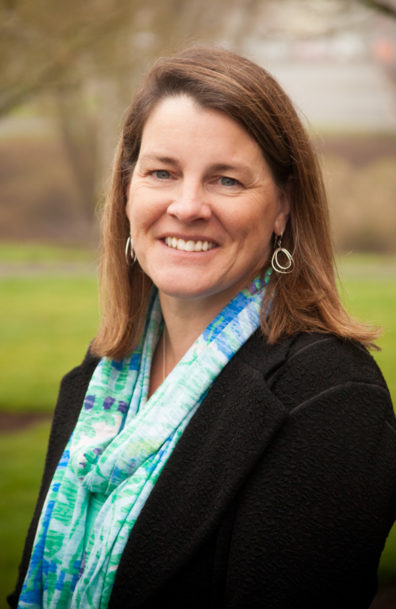
Gretchen Rollwagen-Bollens
The focus of Dr. Rollwagen-Bollens’ research is to better understand and quantify feeding interactions in planktonic food webs, in particular the role of planktonic consumers on the dynamics of harmful algal blooms and the transfer of materials and energy from primary producers to aquatic invertebrates and fish. A potential REU student project would be to complement results of recent studies in Vancouver Lake with new experiments in other lakes testing the impact of planktonic grazers relative to nutrient addition, to examine the combined effect of both micro- and macro-sized zooplankton on algal growth. Dr. Rollwagen-Bollens co-directs the Aquatic Ecology Lab, which works on a range of projects in freshwater lakes and rivers in the Columbia River Basin.
Aquatic invasive species in the Columbia River Basin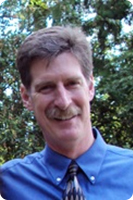
Stephen Bollens
Dr. Bollens’ research is broadly concerned with the ecology of aquatic invertebrates and fish, and spans the subdisciplines of behavior, population biology, community ecology and ecosystem dynamics. His research often has an applied aspect to it, touching upon such areas as conservation biology, restoration ecology, fisheries management, invasive species and global change. A recently funded grant from the Department of Energy, titled “Enhanced monitoring and investigation of the spread and potential impact of aquatic invasive mussels in the Columbia River Basin” would welcome undergraduate participation. Although the primary focus of this new grant is on invasive mussels and other invertebrates, this project also includes a broader consideration of ecosystem impacts of invasive species. Dr. Bollens co-directs the Aquatic Ecology Lab at WSU Vancouver.
Watershed biogeochemistry in the Pacific Northwest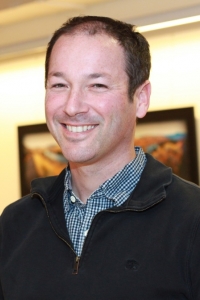
John Harrison
In Dr. Harrison’s lab, undergraduate REU students could contribute to several ongoing projects related to watershed biogeochemistry, with approaches spanning field, laboratory, data synthesis and computer modeling. Ongoing field projects include: 1) an effort to understand interactions between physical mixing and biogeochemical transformations in local lakes and reservoirs; and 2) an effort to understand linkages between reservoir management, water quality and greenhouse gas production. Additional modeling projects include: 1) an effort to understand Pacific Northwest water quality and availability in the context of changing climate and land-use, and 2) an effort to quantitatively link coastal nutrient loading to effects such as hypoxia and changes in fisheries. Dr. Harrison directs the Global Change and Watershed Biogeochemistry Lab at WSU Vancouver.
Hydrology, ecohydrology and landscape dynamics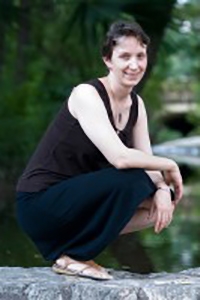
Kevan Moffett
Dr. Moffett’s research concerns the links between hydrological processes and ecological (e.g., vegetation) patterns, especially as such links and feedbacks govern greater aquatic and landscape dynamics. Her research has a strong foundation in physics- and biology-based basic field research and experimentation, further advanced by process-based numerical modeling, remote sensing hydrological, ecological and landscape analysis, and relevant applications (e.g., coordinating with education, management, and restoration). REU students could develop independent studies related to current research efforts on, e.g.: the urban green water cycle (especially role of street trees) and the impacts of its runoff on downstream aquatic systems; or post-wildfire ecohydrological recovery and relations to soil moisture, runoff, forest regrowth, and future fire risk. Dr. Moffett leads the Hydrology, Ecohydrology and Landscape Dynamics lab at WSU Vancouver.
Anthropogenic inputs into surface waters 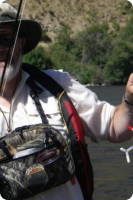
Steven Sylvester
In Dr. Sylvester’s laboratory at WSU Vancouver, students are attempting to understand nature at the molecular level and often with a bent toward reproductive biology. He uses techniques of organic chemistry, analytical chemistry, protein biochemistry, immunochemistry and molecular biology to address projects, such as: 1) isolating pheromone genes in oysters and snail predators; 2) determining polycyclic aromatic hydrocarbons in households near oil and coal trains; 3) determining the omega-3 fatty acids available to bull trout in disturbed environments; and 4) detecting caffeine in the intertidal zone of various locations along the Oregon Coast and from nearby Lacamas Lake, a small eutrophic reservoir. Related projects that could involve REU students include measuring the occurrence of caffeine along the length of the streams that feed the reservoir and correlating this with the spatial occurrence of septic tank leach fields. Dr. Sylvester works in his lab with many undergraduate and graduate students at WSU Vancouver.
Physical-biogeochemical interactions in lakes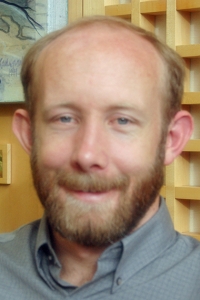
Stephen Henderson
Dr. Henderson specializes in field measurements of water flows and mixing in shallow environments such as lakes, rivers and the ocean. He has worked with undergraduates on a range of past projects, where students each spent a week in the field planning deployments, programming, deploying and recovering instruments, with several undergraduates trained in boat operation and SCUBA. A recently funded project is focused on nutrient mixing in lakes, will provide numerous opportunities for similar student projects over the next three summers. Dr. Henderson directs the Environmental Hydrodynamics Laboratory at WSU Vancouver.
Projects and research in terrestrial systems:
Disturbance ecology at Mount St. Helens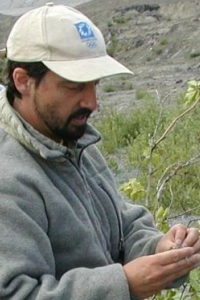
John Bishop
Part of Dr. Bishop’s research is to test the hypothesis that insect herbivory is an unrecognized major factor influencing recovery of biological systems following the catastrophic 1980 eruption of Mount St. Helens. Annual surveys of permanent plots combined with experimental exclusions are used to quantify impacts of herbivores on two key “ecosystem engineering” plants: lupins, which facilitate soil development; and willows, the main source of three dimensional vegetation structure required by many animals. REU student projects could include: 1) investigating insect herbivore impacts on various plant species; and 2) quantifying responses to long term exclusion and nutrient supplementation experiments. Dr. Bishop directs the Disturbance Ecology Lab at WSU Vancouver.
Stable isotopes and organic geochemistry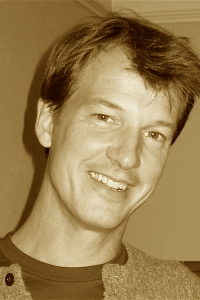
Marc Kramer
In Dr. Kramer’s lab, undergraduate REU students could contribute to several ongoing projects related to soils and ecosystem geochemistry, with approaches spanning field, laboratory, and data synthesis. Our lab group studies interactions among climate, the biosphere and the pedosphere. We examine the structure and function of the Earth’s surface from a biogeochemical perspective — particularly in the context of climate change and the forcing factors that drive earth surface structure and function. Ongoing field projects include: 1) an effort to understand thresholds in ecosystem response to climate change 2) soil geochemistry and ecosystem function of soils in the pacific northwest 3) carbon sequestration potential of soils under a changing climate. 4) the use of natural abundance stable isotopes to understand soil / ecosystem processes. Dr. Kramer directs the Stable Isotope and Organic Geochemistry Laboratory at WSU Vancouver.
Population ecology of endangered butterflies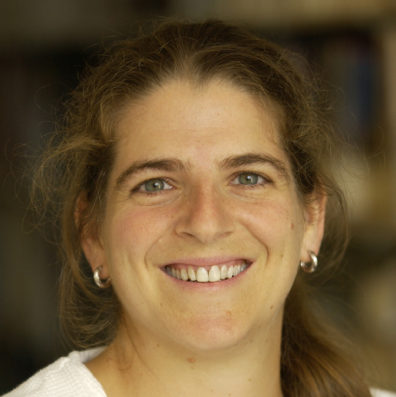
Cheryl Schultz
Dr. Schultz is a conservation biologist who uses a population ecology lens to address questions concerning the recovery of rare species and restoration of their habitats. She is especially interested in questions such as: How can we understand behavioral responses to landscape change as a way to enhance success of conservation programs for at-risk species? How can we use individual and population-level responses to conservation tools such as herbicides and fire to augment populations of rare species? What is the role of captive propagation in enhancing endangered species populations? REU students could participate in several current studies on the ecology of rare butterflies. Dr. Schultz directs the Conservation Biology Lab at WSU Vancouver.
Avian fatalities at wind facilities in the United States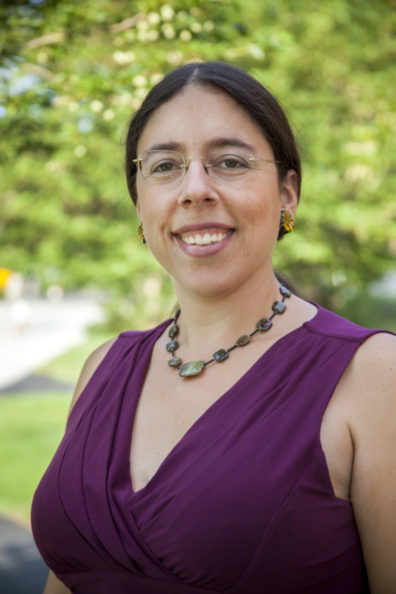
Leslie New
The focus of Dr. New’s research is the practical application of statistics to questions of ecological interest. Her research is heavily applied, modeling the role of environmental and anthropogenic change on population dynamics with the goal of understanding the population’s responses to management and conservation initiatives under various social, economic and environmental systems. She is particularly interested in understanding the impact of wind facilities on avian species, especially golden and bald eagles. Summer REU students could analyze data to improve understanding of the distribution of avian carcasses on the landscape, or investigate the effectiveness of different carcass monitoring protocols, with the potential to develop their own field project. Dr. New is currently establishing her Statistical Ecology Lab at WSU Vancouver.
Mathematical ecology and forest ecosystem dynamics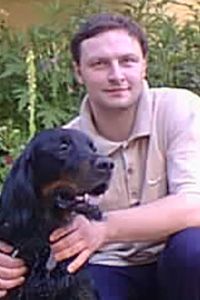
Nikolay Strigul
Dr. Strigul conducts interdisciplinary research. Undergraduate REU students working with him will be involved in projects where mathematical methods, in concert with field and experimental studies, can lead to better understanding of environmental sciences, ecotoxicology and ecosystem management. In particular, students will study biocomplexity and ecosystem self-organization, focusing on the effects of climate change and different land use practices on forest dynamics and sustainable management of forested ecosystems. Students may also develop skills in: 1) using unmanned aircraft vehicles (UAV) and photogrammetry to collect individual tree growth and shape characteristics; 2) application of new data mining and Bayesian statistical methods to analyze US and Canadian forest inventory datasets; and 3) development of a new generation of individual-based forest models. Dr. Strigul directs the Mathematical Ecology Laboratory at WSU Vancouver.